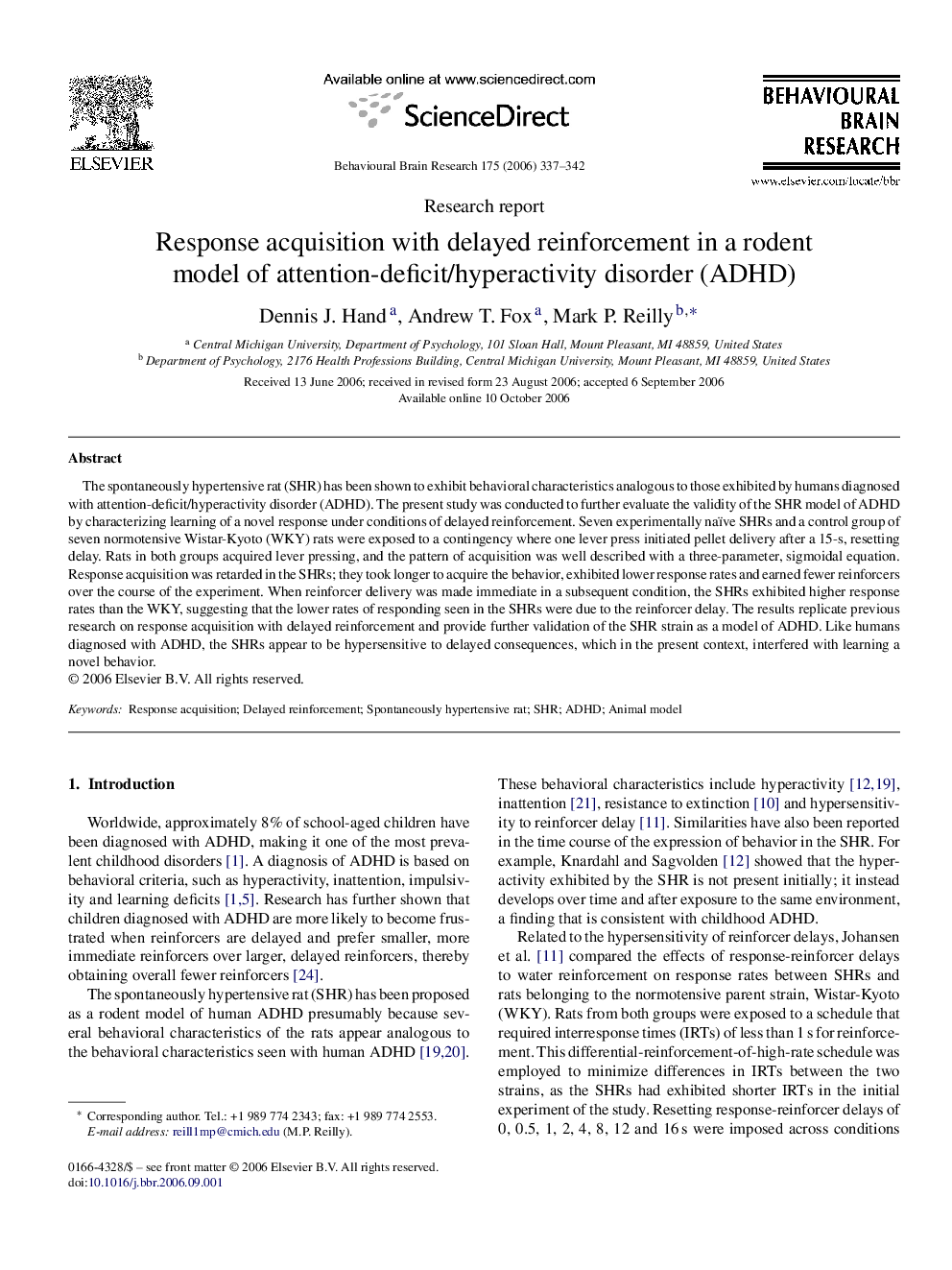| Article ID | Journal | Published Year | Pages | File Type |
|---|---|---|---|---|
| 4315904 | Behavioural Brain Research | 2006 | 6 Pages |
The spontaneously hypertensive rat (SHR) has been shown to exhibit behavioral characteristics analogous to those exhibited by humans diagnosed with attention-deficit/hyperactivity disorder (ADHD). The present study was conducted to further evaluate the validity of the SHR model of ADHD by characterizing learning of a novel response under conditions of delayed reinforcement. Seven experimentally naïve SHRs and a control group of seven normotensive Wistar-Kyoto (WKY) rats were exposed to a contingency where one lever press initiated pellet delivery after a 15-s, resetting delay. Rats in both groups acquired lever pressing, and the pattern of acquisition was well described with a three-parameter, sigmoidal equation. Response acquisition was retarded in the SHRs; they took longer to acquire the behavior, exhibited lower response rates and earned fewer reinforcers over the course of the experiment. When reinforcer delivery was made immediate in a subsequent condition, the SHRs exhibited higher response rates than the WKY, suggesting that the lower rates of responding seen in the SHRs were due to the reinforcer delay. The results replicate previous research on response acquisition with delayed reinforcement and provide further validation of the SHR strain as a model of ADHD. Like humans diagnosed with ADHD, the SHRs appear to be hypersensitive to delayed consequences, which in the present context, interfered with learning a novel behavior.
